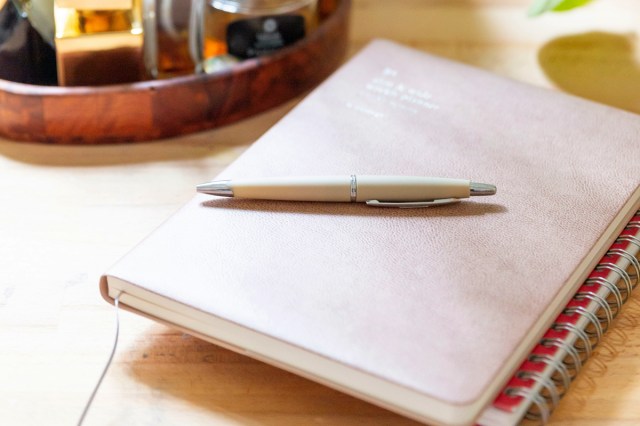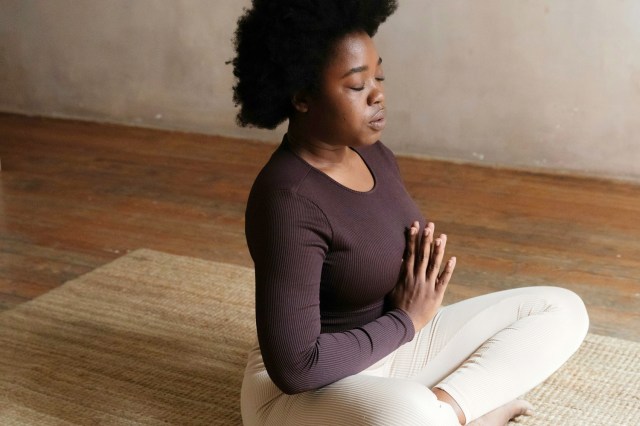“Mindfulness” is a buzzy word you might have heard from your friends in therapy or your favorite influencer on social media. But what actually is it, and why should you consider implementing it in your everyday life? We’ll get to the first part of that question in a minute, but as for the second, mindful movement instructor and meditation teacher Aubre Winters-Casiano can speak to the benefits firsthand.
“I spent a lot of my 20s crippled by anxiety, comparison, and intrusive thoughts, all of which made me feel very disconnected from myself,” she tells us. If you’ve felt similarly, it may be worth investing your time and energy into a mindfulness practice.
According to the Mayo Clinic, mindfulness is a type of meditation in which you focus on being intensely aware of what you're sensing and feeling in the moment, without interpretation or judgment. Practicing mindfulness involves breathing methods, guided imagery, and other exercises to relax the body and mind, and help reduce stress.
The key to mindfulness is to clear your thoughts of anything superficial or not immediate, and instead take a few moments to fill your mind with your current present surroundings. Winter-Casiano found the consistent practice of mindfulness to be helpful for her anxiety and intrusive thoughts. “Several years ago, I started integrating mindfulness into my morning routine and it completely shifted the way I felt about myself,” she says.“These mindfulness practices are like tools that you can use at any moment in time to bring you closer to the way you want to feel and the person you want to become. Mindfulness helped clear my mind, deepen the relationship I had with myself, and made me feel evermore connected to the world around me.”
Whether you’re just beginning your mindfulness journey or looking to switch up your current practices of the technique, here are some of Winter-Casiano’s favorite ways to incorporate mindfulness every day.

1. Practice Gratitude
Gratitude brings you into the present by connecting you to the things in your life, both big and small, that bring you joy or peace. Taking 30 to 60 seconds to write down three things you’re grateful for at least once a day can instantly shift you into a better and more grounded mindset. You can use your notes app on your phone, or just identify and name what you’re grateful for in your head if you’re not able to write it down at that moment.

2. Do Breath Work
Take a small moment to pause and breathe slowly and deeply to help soothe and relax your body. We recommend doing the 4-4-4-4 technique. Breathe in for four counts, hold for four counts, breathe out for four counts, hold for four counts, and repeat as many times as you’d like. This is a great way to center yourself amid everyday chaos, because you can do it anywhere.

3. Tune In to Your Senses
This is a practice often used when first exploring mindfulness in therapy, and it’s especially great for dealing with intrusive thoughts or dissociation. No matter where you are, you can ground yourself back in your body and immediate surroundings by becoming aware of what you see, hear, taste, smell, and feel physically. It can be helpful to do all five senses as a type of meditative practice to bring yourself into the present moment

4. Try Journaling
Take three minutes to clear your mind in the morning or simply write about how you’re feeling, what you want to accomplish in the day ahead, or any affirmations that work for you. We personally love starting with a to-do list or a topic, person, or situation that’s been running through our minds and seeing where that takes us. Whether you write two sentences or two pages, taking the time to focus on putting your thoughts from pen to paper can be a useful tactic to clear your mind.

5. Practice Meditation
It takes consistent practice to feel comfortable with meditation, and many people shy away from it because they don’t think they can “turn off” their thoughts. But there are many different techniques you can try, and the goal is perspective, not perfection.The important thing is to bring your awareness to the present without distractions from what is going on around you. There are free guided meditations you can try online, and even if you don’t stay mindful throughout the entire session, even a few moments everyday can have positive effects on your overall well-being, inner peace, and self-compassion.
This article is for general informational purposes only.
Affiliate Disclaimer Medical Disclaimer












 Unique Beauty is free for all users.
Unique Beauty is free for all users.